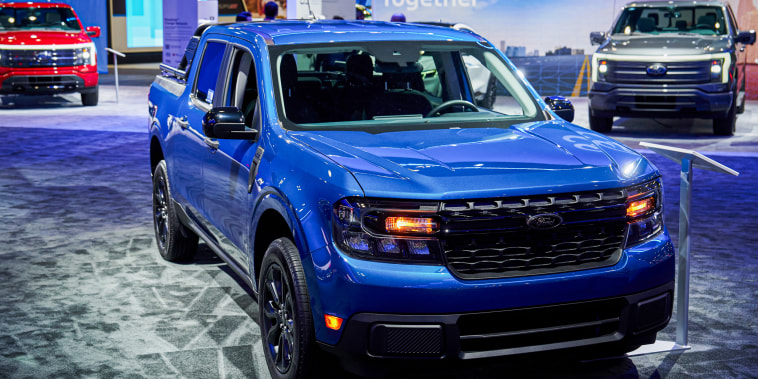Ford to Delay All-Electric SUV to Focus on Offering Hybrid Vehicles Across Its Lineup by 2030
Speculations are rife in the automotive industry as Ford considers delaying the release of its highly anticipated all-electric SUV to shift its focus towards offering a broader range of hybrid vehicles across its lineup by the year 2030. While the decision has sparked a mixed reaction among industry experts and consumers alike, Ford’s deliberate strategy to prioritize hybrid technology over full electrification raises interesting points for discussion.
One of the key reasons behind Ford’s pivot towards hybrid vehicles is the company’s aim to cater to a wider audience while maintaining a balance between technological advancements and consumer demands. With hybrids offering a transitional approach to electrification, Ford may be looking to ease its customer base into the world of electric vehicles gradually. This strategic move aligns with the broader industry trend of automakers introducing hybrid variants as a stepping stone towards achieving full electrification.
Moreover, the decision to delay the release of the all-electric SUV could also be attributed to Ford’s meticulous approach to perfecting its hybrid technology before venturing into the fully electric segment. By focusing on hybrid vehicles in the short term, Ford aims to refine its existing hybrid offerings, streamline production processes, and enhance the overall quality of its hybrid lineup. This move reflects a commitment to delivering reliable and efficient hybrid vehicles that meet the evolving needs of consumers.
Additionally, Ford’s emphasis on hybrid vehicles may be driven by market dynamics and regulatory pressures. As governments worldwide push for stricter emission standards and environmental regulations, automakers are under pressure to accelerate their transition towards electrification. By prioritizing hybrid vehicles in the near term, Ford may be seeking to comply with regulatory requirements while also preparing for a future where fully electric vehicles become the norm.
Furthermore, the decision to focus on hybrid vehicles aligns with Ford’s sustainability goals and commitment to reducing its carbon footprint. Hybrid vehicles offer a compromise between internal combustion engines and pure electric vehicles, providing a more environmentally friendly alternative that reduces emissions without compromising on performance or range. By expanding its hybrid lineup, Ford aims to contribute towards a greener future while also meeting the expectations of environmentally conscious consumers.
While the delay in the release of the all-electric SUV may disappoint some consumers eagerly awaiting Ford’s foray into the electric vehicle market, the company’s strategic shift towards offering hybrid vehicles signifies a calculated approach towards achieving long-term success and sustainability. By investing in hybrid technology, Ford can leverage its expertise, enhance its product offerings, and pave the way for a smoother transition to full electrification in the future.
In conclusion, Ford’s decision to delay its all-electric SUV in favor of prioritizing hybrid vehicles across its lineup by 2030 reflects a strategic move that balances consumer preferences, technological advancements, regulatory requirements, and sustainability goals. By focusing on hybrids as a stepping stone towards electrification, Ford aims to cater to a wider audience, perfect its hybrid technology, and align with market trends. While the shift may raise eyebrows in the industry, it underscores Ford’s commitment to innovation, sustainability, and long-term success in a rapidly evolving automotive landscape.
